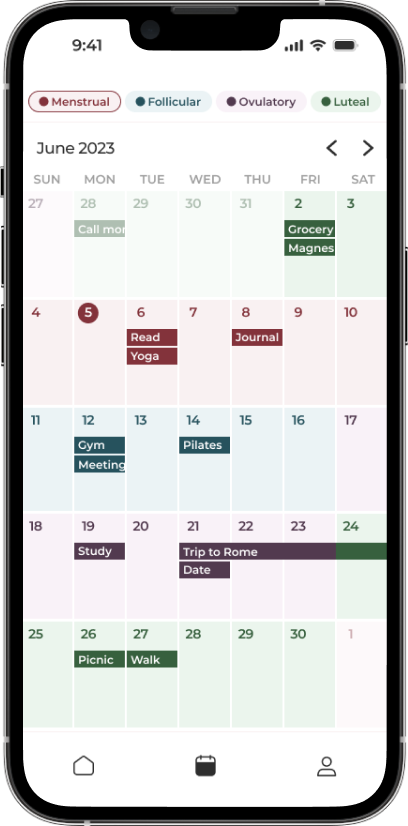How to Journal for Self-Growth

Journaling is one of the most powerful tools for personal development. It allows you to reflect, express your emotions, set goals, and track progress. By making journaling a habit, you create a space to better understand yourself, your thoughts, and your journey. Whether you’re just starting or looking to deepen your practice, here’s how you can journal for self-growth.
Set Clear Intentions
Before you start writing, set an intention for your journaling practice. Ask yourself what you want to achieve. Are you seeking clarity? Do you want to process emotions, build self-awareness, or track your progress toward a specific goal? By understanding the purpose behind your journaling, you’ll have more focused and intentional entries. For example, you might decide to write about gratitude, explore your dreams, or work through challenges you’re currently facing.
Make It a Daily Practice
Consistency is key to seeing the benefits of journaling. Set aside a specific time each day, even if it’s just for a few minutes. Writing every day, or at least several times a week, ensures that you stay engaged with your personal growth journey. Whether it’s in the morning to set intentions for the day or at night to reflect on your experiences, regular journaling helps reinforce the habit and deepens self-awareness.
Start with Prompts
If you’re unsure of what to write about, prompts can be a great starting point. Prompts help guide your thoughts and ensure you’re touching on different aspects of your growth. Some examples include:
- What am I grateful for today?
- What did I learn about myself this week?
- What challenges am I facing, and how can I overcome them?
- How can I improve my mindset?
- What are three things I can do to take care of myself today?
These prompts encourage you to reflect, set intentions, and discover patterns that may guide your growth.
Workbooks vs. Blank Pages
When it comes to journaling for self-growth, you can choose between a blank journal or a workbook. If you prefer to have complete freedom to express your thoughts, a blank journal may be the right fit for you. It gives you an open space to explore your ideas without constraints. On the other hand, workbooks often provide guided questions or structured exercises that can help you dive deeper into self-reflection. These prompts can be especially useful if you’re new to journaling or looking for a more focused approach. Whether you choose a blank journal or a workbook depends on your personal preferences and how you feel most comfortable exploring your growth.

Check out the Vision to Action Planner for only 6$
More infoBe Honest and Vulnerable
The beauty of journaling lies in its freedom. There’s no need for perfection, and you are the only one reading your journal. This gives you the opportunity to be completely honest and vulnerable. Express your true feelings, fears, and dreams without judgment. This raw self-expression allows you to uncover insights and discover areas for improvement that might otherwise remain hidden. It’s important to let go of any self-censorship and allow your thoughts to flow freely.
Reflect on Your Growth
As you journal regularly, take time to look back on your entries. Reflecting on how far you’ve come is a crucial part of the self-growth process. Notice any patterns or recurring themes. What challenges have you overcome? How have your thoughts and feelings changed over time? This reflection helps you see your progress and serves as a reminder of the strengths you’ve developed. It also provides a sense of accomplishment and motivation to continue on your journey.
Quiz: What Is Blocking Your Success?
This quick quiz will help you figure out which mental or behavioral pattern might be holding you back from achieving your full potential. Identifying your specific success blocker is the first step toward breaking through to new levels of achievement and fulfillment.
Read each question and choose the answer that feels most true to your situation.
No email or payment is required to complete the quiz and receive your personalized insights.
Once you have your primary success blocker, you have clarity about what’s been holding you back. This awareness is powerful—many people spend years struggling without understanding the specific pattern that’s limiting their progress.
Remember, these patterns aren’t permanent character traits but rather habitual ways of thinking and behaving that can be changed with the right guidance and practice.
If you’re ready to break through your specific blocker and achieve the success you know you’re capable of, send me an email to try out a coaching session. Your breakthrough awaits!
Use Your Journal to Set Goals
One of the most effective ways to use journaling for self-growth is to set clear, actionable goals. Write down both short-term and long-term goals, and break them into smaller, manageable steps. As you achieve these goals, record your progress in your journal. This not only helps you stay focused but also reinforces a sense of purpose. Review your goals regularly, and adjust them if needed based on your changing aspirations.
Practice Self-Compassion
Growth isn’t always linear, and journaling can help you cultivate self-compassion. When you face setbacks or feel frustrated, write about how you’re feeling without self-criticism. Treat yourself with the same kindness you would offer to a friend going through a tough time. Self-compassion helps you navigate challenges with more resilience and strengthens your emotional health.
Focus on Positive Affirmations
Journaling isn’t just about venting or problem-solving; it’s also about building a positive mindset. Start or end each journal entry with an affirmation that resonates with you. Positive affirmations help reshape limiting beliefs and boost self-esteem. For example:
- “I am capable of handling whatever comes my way.”
- “I am worthy of love and success.”
- “I trust the process of my personal growth.”
These affirmations will help you rewire your mind, reduce negative thinking, and cultivate a sense of self-belief.
Prompts for Deeper Self-Reflection
To dive deeper into self-reflection and unlock more meaningful insights, try incorporating prompts that challenge you to examine your life on a deeper level. These prompts encourage you to explore core beliefs, values, and long-term aspirations:
- When was the last time I felt truly at peace, and what can I learn from that moment?
- What are my biggest fears, and how do they hold me back from growing?
- How have I handled failure in the past, and what does that reveal about my mindset?
- What limiting beliefs have I been carrying, and how can I begin to shift them?
- What does my ideal life look like, and what steps can I take to bring it closer to reality?
These deeper prompts invite you to dig beneath the surface and examine the aspects of your life that may require healing, growth, or change.
Stay Patient and Trust the Process
Personal growth is a journey that unfolds over time. Don’t expect immediate results or judge yourself harshly if progress feels slow. Journaling is an ongoing process that helps you develop clarity, resilience, and insight. Trust that the act of reflecting, even when it feels challenging, is contributing to your growth. Keep showing up for yourself, and your efforts will pay off.
Still waiting for the 'perfect time'?
Email me what you'd do if you stopped making excuses. We'll work backwards from there.
Let's startRecent posts
-
The Complete Guide to Becoming a High Achiever
Read blog -
How To Make a Positive Impact in Your Community
Read blog -
What Is the “Winter Arc” Challenge?
Read blog -
What Is "the Great Lock-In" and Should You Try It?
Read blog -
What Are the 75 Hard and Soft Challenges?
Read blog -
How to Validate Yourself
Read blog

The App Made To Sync Your Lifestyle to Your Menstrual Cycle.
A solution for women who are looking to keep track of what they sync to their cycles, such as fitness, diet, etc. by adding it to a calendar that also predict their phases.
Learn more





Comment